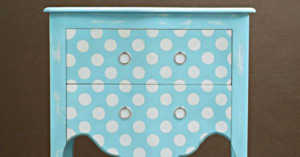Fragile and valuable, antiques need equal amounts attention and care – though sometimes our well-intentioned attempts at TLC actually do more harm than good. To keep your antiques in prime condition, avoid some of the actions below than actually hurt their value, authenticity, and structure.

1. Not Considering Climate
Many antiques are wooden, which means they are quite sensitive to changes in climate – too dry, and the wood could split; too moist, and you could be seeing mold. This means that moving antiques to a basement or attic — or keeping them very close to heating vents — could affect the wood, so be careful when choosing a resting spot for your precious cargo.
If you’re moving from one climate to another, consider how it will affect the wood and prepare accordingly. Click here to watch eHow’s video for treating wood before moving from a humid climate to a dry climate, so it doesn’t dry out and split.
2. Incorrect Cleaning
Depending on the material of the antique, it’s important to know what cleaning techniques won’t harm it – using water to clean wood can add moisture and cause it to swell, so oil-based wood cleaners are ideal. Martha Moments even has a few tips on making sure the surface isn’t scratched when you’re trying to clean off dirt, like using a vacuum and paintbrush to loosen and suck up dirt.
Silver, brass, copper, steel – research the best ways to clean these materials before trying to use traditional soaps or surface cleaners. Oftentimes there are tricks of the trade – vinegar, lemon juice, etc. – aside from chemical-based cleaners that can gently handle oxidation without damaging an item’s appearance or value. You don’t want to ignore your antiques, but don’t want to overdo it either.
3. Refinishing or Painting Items Yourself
Though it’s not always terrible to refinish or paint old furniture, valuable antiques don’t fall into that category. Paint could damage and drastically drop the value of the antique, unless refinished by an expert in the field. Before taking on any DIY paint jobs, consult a professional.
4. Not Protecting Breakables
Whether you share your house with kids or pets, or simply want to make sure accidents don’t happen, keeping breakables protected is always a good idea. Think about keeping very valuable items in cabinets with doors, rather than in a place where someone could easily knock them over, or showcasing them somewhere away from a lot of traffic.
5. Keeping Items in Direct Sunlight
It’s great to keep your antiques out in the open for you and guests to admire, but make sure they aren’t spending most of the day sitting in direct sunlight. Many items – things like quilts and papers – will fade or discolor under too much sunlight, and paper can be especially susceptible to drying out. Display them somewhere in the house that gets plenty of shade so your prized possessions stay in solid condition.
Follow this advice, and your antiques will get the right amount of TLC while still maintaining their value.
